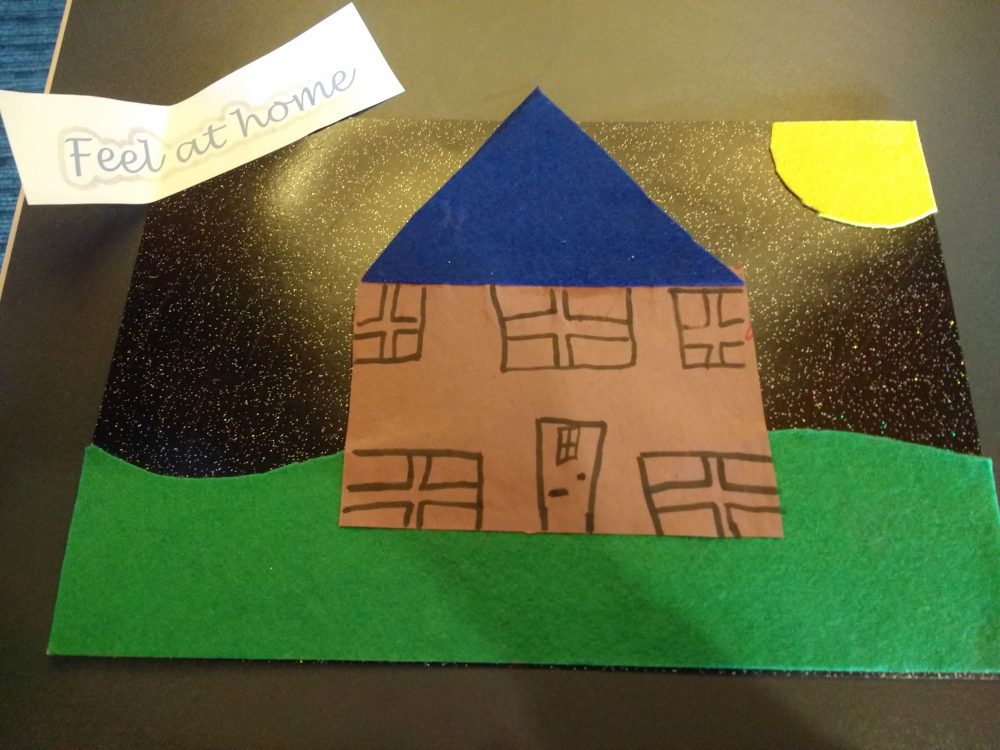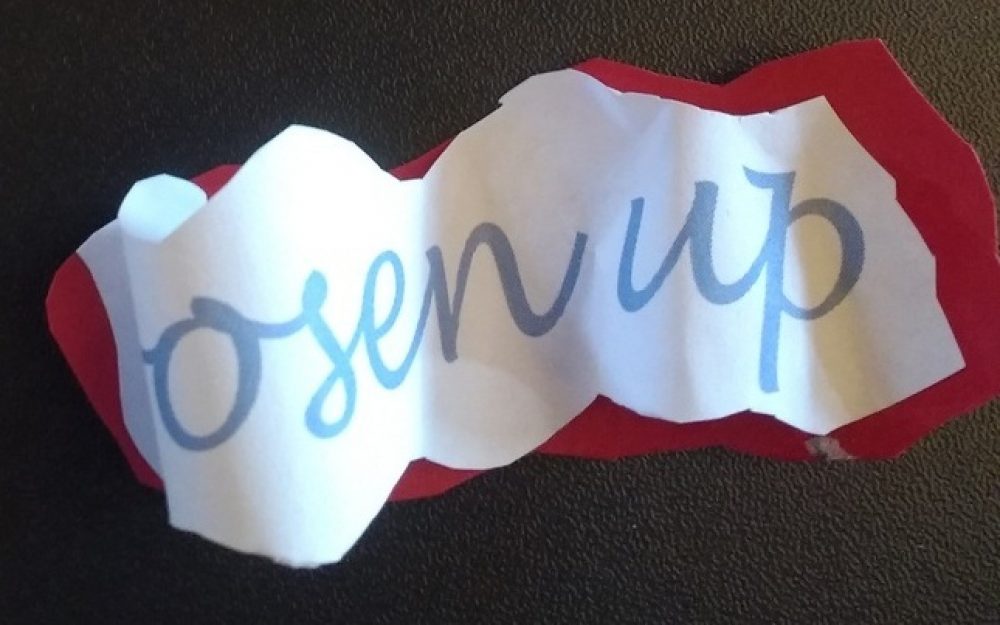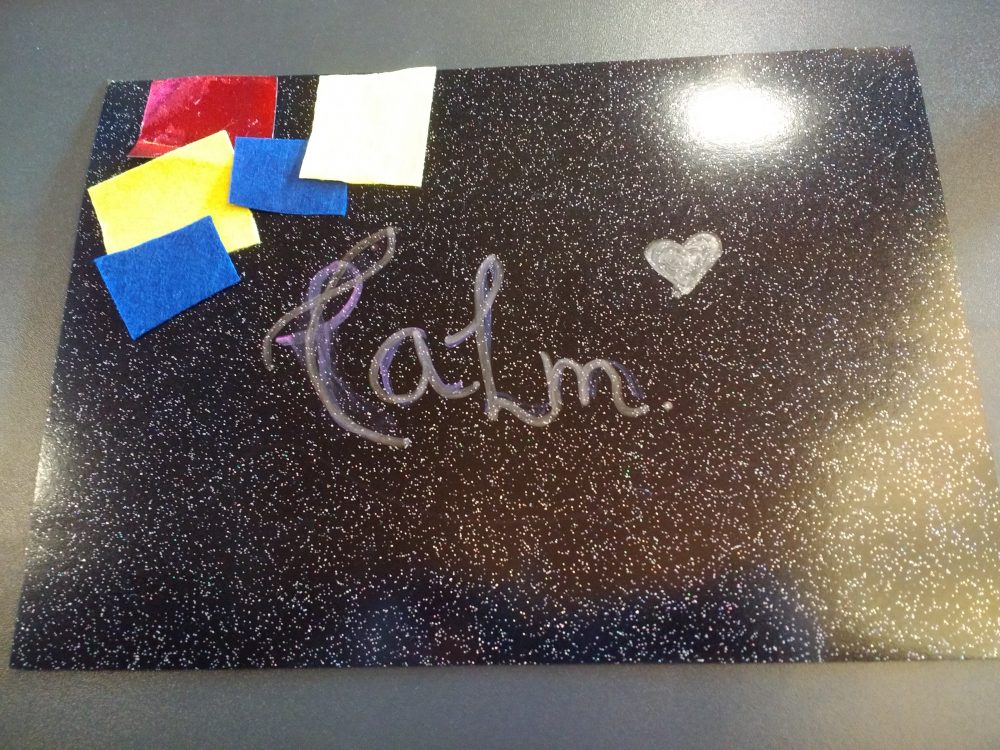You're on the Young People Site
Dedicated to self-harm recovery, insight and support.
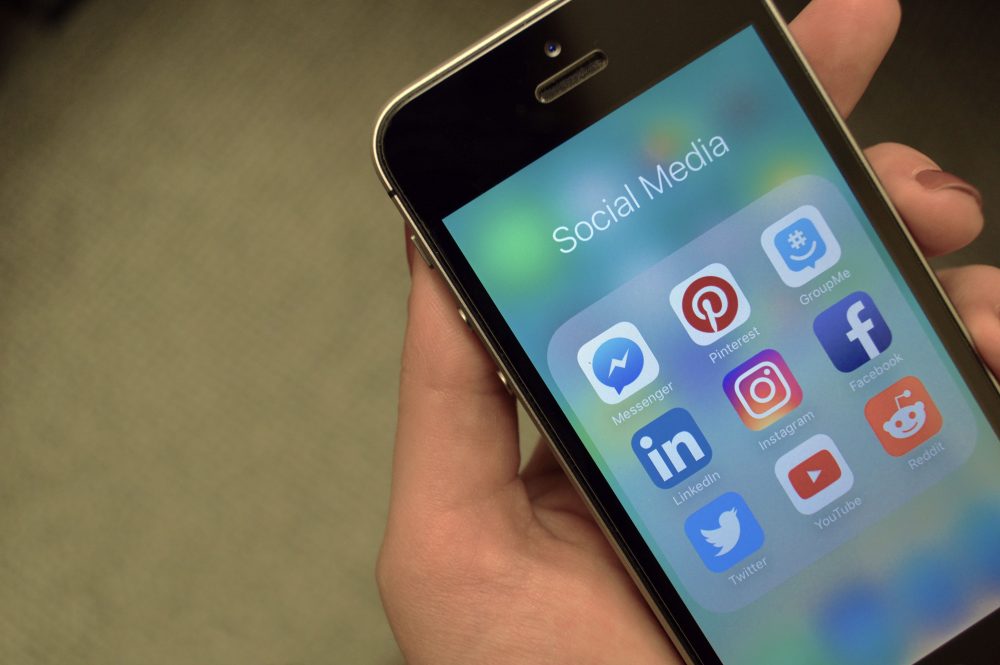
Jess Whittaker, a member of the SelfharmUK team, shares her thoughts about how you can stay smart on Instagram.
Today, as I was driving in to work, something I heard on the radio caught my attention and immediately made me turn up the volume. It was a report claiming that Instagram is one of the worst social media platforms when it comes to the impact on young people’s metal health.
In the UK, a survey of 1,479 people aged 14-24 were asked to rate which social media platform they felt had the most negative effect on them. They then scored each platform individually around issues like anxiety, depression, loneliness, bullying and body image.
Once the report had finished, I turned the radio off and thought for a moment. Like everything, Instagram has positive and negative sides to it, depending on what you use it for.
For example, lets’ say you’re someone who’s suffered from a mental health issue, such as self-harm or bulimia and are now in full recovery (well done you!). You might choose to use Instagram to share your story by posting inspiring quotes and photos that show the positive things in your life. There is no denying that Instagram is a really great way to visually spread positive messages quickly.
But what if you’re someone who spends hours on Instagram late at night, alone in your room, constantly comparing yourself to other people? You’ve stopped posting selfies because you’re so convinced that your photos look awful compared to your friends, that all you really use Instagram for now is to re-inforce your negative thoughts about yourself.
If you can relate to the above, don’t be embarrassed or afraid to speak up because… whoever you are and however you choose to use it, we have some great tips about how you can protect your mental health on Instagram:
- Limit the time you spend on there: like all social medias, Instagram can get kind of addictive. Whilst you might feel like time stands still when you’re on there, it doesn’t. You can literally Insta-away your whole weekend and before you know it, it’s Monday already and your back at School or College again! Just think of all that time wasted and all the fun things you could of been doing instead!? Next time you’re on there, set an alarm to ensure you don’t stay on there for too long, or only look during a short car ride somewhere. As soon as you are where you need to be, close your Instagram app and engage with your surroundings.
- Stop comparing yourself to others: this is a tough one. It’s easy for people to tell you not to compare yourself to others, but the truth is, it’s something that everyone has to deal with throughout their lives every now and again. It becomes a problem, however, when it starts to affect your self-esteem, so how you feel about yourself, and you stop doing the things you used to enjoy because you can’t see the point anymore. If you think Instagram (or any social media for that matter) is starting to make you feel that way, tell a family member or trusted adult. Speaking up isn’t easy, but talking about how you feel is the first step to getting help.
- Think that if it looks too good to be true - it probably is: chances are you already know this, but lots of photos we see on social media have been digitally manipulated. This means that they have been edited on a computer using software like Photoshop to make them look better than they are. Many of the Fashion brands or Celebrities you follow will use this technique, but it’s something we constantly have to remind ourselves of as they can become the norm and start to look real. Next time you see a photo of someone on Instagram, who looks too perfect to be real, have a laugh about the fact that nine times out of ten, they probably aren’t!
- Know where you can go for support if something you’ve seen is bothering you: if you see something on Instagram (or any other social media platform) that upsets you for any reason - report it using the options available, then tell a family member or trusted adult immediately. If you don’t want to talk about it with someone you know, you can call The Samaritans or Childline at any time.
- Don’t go on Instagram alone: at the end of the day, if you’re someone that has always struggled with how social media makes you feel, schedule times to login with your friends after School or College. This way you can instantly discuss anything that you have seen that is upsetting you and find out what your friends think. Again, if you’re still unsure, you can always talk to a family member or trusted adult.

This article was written by Sophie, a previous Graduate Volunteer with Youthscape, to celebrate World Music Day.
I am a massive lover of music; I’m constantly listening to it. I’ve actually got my headphones in now as I write this!
Music is powerful. It can be so influential, and can be used as a way to express feelings, share a particular message, tell a story, and bring people together. There’s always something for everyone’s taste. You can study music, create it, or simply just listen and appreciate it. There is so much I love about music, where do I even start?
I’ve grown up in a musical family. My dad led the music at Church and was always playing his guitar and singing around the house. Whenever we would see his side of the family, it would always end up in a good ol’ sing song, and it still does! My brother is also very musical and I’d say I am too, though not to the same extent – my guitar playing skills are a little rusty! However, as I said, I’m always listening to music, and it has certainly helped me through life.
Music is everywhere we go; most shops we go into will always have music playing in the background, and I’ve even been in some shops that have a DJ! I also particularly like the pianos at St Pancras train station, free for anyone to play. It amazes me how much talent there is out there, and being able to hear a performance live is always so great! I love when you can literally feel the music, the bass in your chest, those songs that give you goosebumps, music that really resonates with you.
I love that music is for any and every mood, from when you need a good cry, to when you’re absolutely pumped and feel on top of the world! Music would help me through times where I felt alone and it would sometimes express my emotions – you know, when there’s a song that completely describes how you’re feeling or what you’re going through? Or when a song puts into words what you struggle to? Music helps calm my anxiety and has distracted me when I need a break from what’s going on around me – headphones in, world out! Music can put me in an amazing mood, it can lift me if I’m feeling a bit down, it can bring back great memories and can make me want to sing and dance around wherever I am (and I will do so where appropriate!)
Music has got me through many hours of work, revision and essays. I know a lot of people who need silence to work, but music motivates me and helps me concentrate (most of the time). I remember my friend once telling me how she got around music being a distraction - she had started listening to songs in a different language so it meant she couldn’t get distracted by singing along to it!
I absolutely love how music brings people together, through the love of a song, band/artist, cause - we recently saw how so many people came together for the benefit concert, to help raise funds for the victims of the Manchester attack and their families. As well as people actually being at the concert, so many people tuned in to watch from home too. Music can connect people across cities, countries and continents, and in a way, it’s like a language we all share.
I just couldn’t imagine a world without music, could you? There are so many reasons to celebrate it today!

The blog below was written by Gill Peck. Gill works as a Service Manager for Community Partnerships. She is passionate about emotional wellbeing; enjoys meeting people from all walks of life and journeying with them to reach their full potential.
That voice.
That voice.
That voice that creeps in, it lingers, hanging around when it knows it isn't welcome. That voice which can be self critiquing about my appearance. That tells me nothing looks good on me as I get ready to go to work in the morning; which makes me think for a while I am all that I can see in the mirror. That voice. That voice that makes me doubt the size I actually am. Knowing I'm a healthy size 10 yet the mirror making me feel dissatisfied at times with the reflection looking back at me. That voice that then makes me annoyed, knowing it isn't welcome and I shouldn't listen to it. Knowing I've developed a healthy relationship with food, no longer comfort eating my emotions away.
But If I could change one thing it would be that voice. That voice that pops up once in a while and then stays a little longer than welcome.
Over the years I've learnt to become more and more satisfied with life, with what I have and enjoying life in the present, not wishing for the future or longing for the past.
Yet that voice still pops up every now and then... And when it does, it makes me doubt myself.
When I was given the theme for this blog post, I decided I would be vulnerable. Decided I'd let some of my guard down and share that battle I still face at times.
So often, people can be quick to look at pictures of my slimmer figure and assume everything must be perfect. Yes, I do feel better, so much better in myself since losing some weight to benefit my health and yes, I am in a good and happy place with life overall. However, that doesn't mean I don't still struggle at times with that voice.
I had been in a great place with loving myself and all that I am. But the other night saw me burst into tears when someone asked me an innocent question and that voice told me they must have thought I had put on weight. Yet as I processed how I was feeling, I was reminded that anxiety can have a way of lying to you, of making you believe things which aren't true and can leave you feeling exposed, vulnerable and raw.
Thankfully time and time again, I am reminded that vulnerability is strength.
Choosing to tell someone when you're struggling brings a sense of freedom. Knowing you're not on your own. Knowing someone cares and not only listens but hears what you're saying.
I've found speaking out and saying how I feel when that voice visits, lets me fight it quicker and stops it getting louder and bigger. I continue to enjoy my food, good meals out and love cooking, that voice isn't related to that, it's related to appearance.
It can be a scary concept telling someone how you're really feeling, but by doing so, it can also be the very thing to help you work through situations you face, knowing you're not alone.
Despite me telling my boyfriend how stupid I was for crying and feeling rubbish and horrid, and a load of other things; he comforted me and told me I wasn't any of those things but he heard me. He didn't try to dismiss how I felt but he reassured me and worked through with me how I felt and helped me corme out the other side. Sometimes we need to find another voice, outside of our own to help guide us through.
I wonder if you have a voice, whatever that voice may be that you could sit with and share with others? Choosing to be vulnerable can be the steps to rising above it and moving forwards. After all, as Brene Brown says 'vulnerability is the birthplace of innovation, creativity and change."
What is out there that could be new for you?

When someone we care about is going through a difficult experience that we have no control over, we often feel powerless to help them. We say what we think is best and what sounds the most supportive, but our words never quite feel like enough when compared with the difficulty of their situation.
I don't know about you, but I've read lots of blogs about what to say to people who are struggling with their mental health. I try to use phrases like 'That must be hard for you' and 'You sound like you're really struggling' when listening to my friend's troubles, but I can't shake the feeling that I'm simply stating the obvious.
As a Christian, I grew up in Church listening to people offering each other spiritual words of encouragement. Phrases like 'You're in my prayers', 'God has a plan for you', and 'Put your trust in him' were often said to me, to people I knew, and now by me as I've gotten older. Even though I believe that these phrases are true, I sometimes worry that they are far too easy to say, and that they simply aren't special enough.
I guess that's the thing about words though - sometimes there just aren't any that feel right to say.
And that's ok.
The act of doing something to show support for someone who is struggling, doesn't have to involve spoken words. Below are links to 5️⃣ things you can buy someone who is struggling with their mental health from some fantastic organisations that deserve your support...
1️⃣ EVERYTHING IS GOING TO BE OK A4 NOTEBOOK by Blurt Foundation
2️⃣ AFFIRMATION CARDS by Youthscape
3️⃣ 'YOU'VE TOTES GOT THIS' TOTE BAG by Young Minds
4️⃣ DINGY SKIPPER HEADWARE by Dingy
5️⃣ BE LOVED (BELOVED) ENAMEL PIN BADGE by Beloved
PS. You don't have to spend money to show someone you care. You could make them something by drawing, baking, knitting, building, creating, designing, filming or decorating for example 😄

The blog below was written by Marc. Marc is the founder and owner of Dingy Life, a small active clothing brand based in the UK.
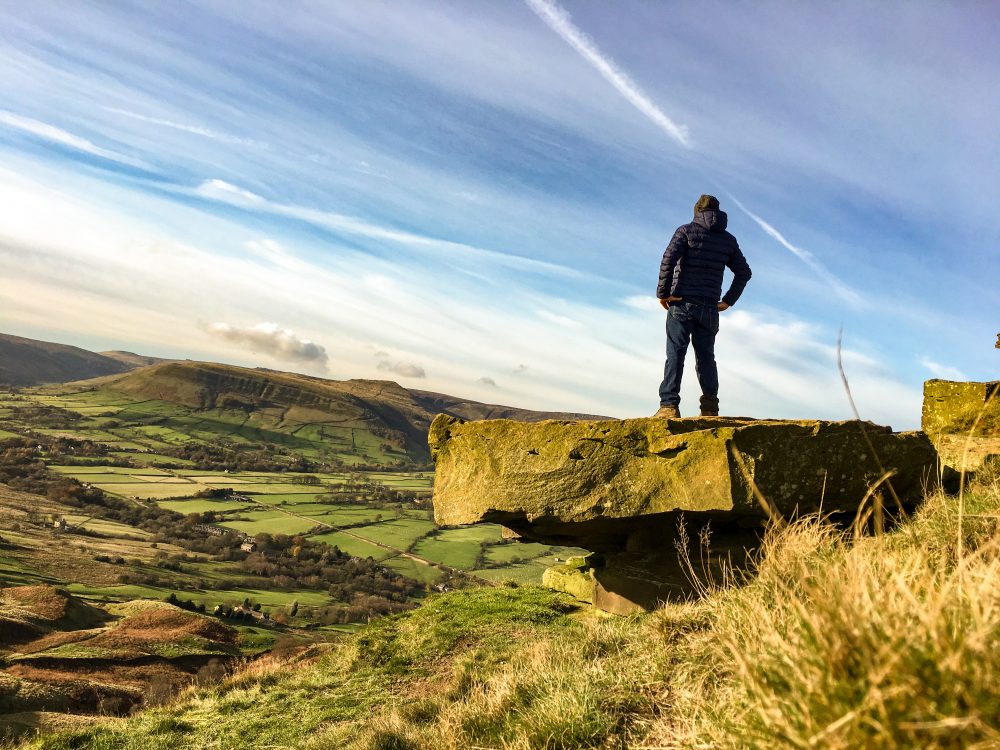
I am a veteran mountain biker and outdoor activity enthusiast and mentor. I have competed in endurance events and races at national level and around the world. In the past years my health has suffered through various traumas in my life and I suffer from depression, anxiety and self-harm.
Along with SelfharmUK, who have some amazing resources and provide some invaluable help, being active and connecting with the outdoors has been a great medicine and helped enhanced my health and mental wellbeing. With the combined help from SelfharmUK, CBT and outdoor activities all have helped me get through some dark and testing times.

So through my journey came a positive outcome - to inspire others who are suffering with mental illnesses, to connect with the outdoors, to enhance health and wellbeing, and to provide information and support. This year I will be competing in a 24hr mountain bike race raising awareness for mental health in the process.
We ride, we climb, we paddle, we swim, we run, we wild camp, we visit some great places all to inspire others. We also design our own branded clothing and sell second hand clothing to raise money for some great causes... and with that in mind, Dingy was born.

Dingy is an outdoor inspired clothing brand based in the UK, who design their own clothing and sell recycled clothing to support people with mental illness. 20% of our profits are donated to SelfharmUK and Mind.
You can support Dingy Life, SelfharmUK and Mind by purchasing products here.

The blog post below was written by Ellen.
When I was 11, I began to suffer from intense panic attacks and I turned to self harm to alleviate some of that pain. Seven years later, I’ve got a long list of diagnosis, including anorexia nervosa, depression and anxiety.
Throughout my GCSEs I barely went to school. I taught myself the courses at home and pushed through my exams. I managed to get A*s, but I couldn’t shake the feeling that I wasn’t really living.
The school I was in at the time was very focused on getting the top grades and getting girls into the ‘best' universities. But even at 11 I knew I didn’t want to be a lawyer or a doctor or an accountant or an engineer… but I couldn’t work out what I did want. And I’ve realised that that’s okay.
One of the biggest steps I’ve taken was starting therapy again. I stopped going for a long time because my body and mind were too weak to benefit from it because of my anorexia, but once I was at a stable weight I went back. My therapist has allowed me to open my eyes to the beauty in the world and always encourages me to chase my dreams, even if I’m not sure exactly what I want. She’s helped me to look for coincidences in life; the world starts to connect up and forms a safety net around you.
She was crucial in helping me transfer to an art college for sixth form, and it’s one of the best decisions I’ve ever made. Things are still really hard sometimes but I am learning to get in touch with myself more and I feel like the universe is there to support me.
I have found myself in art; I joined weekend classes in a London photography studio when I was 15 and I realised I could explore a format people want to see and that makes sense to me. I love to create narratives through both words and images; I am interested in psychology and colour theory and I use art to try and understand myself and others.

I created a scanography series in which I expressed my mental health journey through distorted self-portraits and eerie colour palettes. I was inspired by Amy Hughes, a painter I found reading Aesthetica magazine. Encased (2017) is psychologically and physically charged; I was struck by the strong highlights arching over a figure's back with an agonised, scrunched up face, distorted by the reflected light and texture of a plastic prison. I reached out to Amy and interviewed her for my project - she even invited me to the opening of her show! She encouraged me to express my true-self, which helped me develop my interest in the nature of mankind.

According to a survey carried out by the Mental Health Foundation 2018, 74% of adults in the UK alone report feeling overwhelmed or unable to cope. 51% of these adults felt depressed, and 61% felt anxious. 16% had self harmed and 32% said they had experienced suicidal thoughts. It is hard to tell whether we are just noticing and appreciating the effects of mental health more nowadays, or if there is a crisis as dramatic as reported. Either way, to experience mental health issues or to support someone with them is incredibly, painstakingly hard. I know from my own experience how isolated, hopeless and empty these problems can make you feel. Some of my images are my attempt at describing how you can feel like you're living multiple lives; we lie to people and tell them we're okay, we are misunderstood by others, and we don't know how we even really feel.
As the scanner moved, I lifted my head and lowered it at regular intervals to create the more frozen style of image. I’ve also tried to depict the feelings of isolation, disorientation and sadness. I pressed my face against the scanner to create visible pressure on my nose and forehead; the world is so vast and scary, yet we can feel caught-up and claustrophobic living in it. The qualities of the images create a kind of wavering mood-line - a bit like a line graph - as well as confusion and feeling out of control. I moved my face along with the scanner, not worrying about the slight shake of my body as I did so as this is what created the wavering effect.

I didn't want to make them specific to any one mental health issue; they are universal and can be understood by many. For instance, some images may as a representation of schizophrenia. I wanted to create a sense of understanding for those suffering due to mental health issues, be it the one who is ill or the one caring for them, and also to educate those who think the mentally ill are simply 'over dramatic' or 'not worth helping'.
Reasons to try being creative 🎨...
1️⃣ Creatives activities can help to reduce stress levels, aid mental calmness and serve as a relaxing distraction. You can get absorbed in your mental flow when creating.
2️⃣ Art also helps creative thinking; it can better your problem-solving skills. There are no wrong answers in art and we are allowed to imagine our own solutions. Flexible thought can stimulate in the way that learning a new language can.
3️⃣ Art can improve cognitive abilities and memory for people with serious brain disorders, such as dementia, by stimulating cell growth in the brain.
4️⃣ Chronic health conditions can be left behind while you create; a positive experience, and a chance to achieve allows you to express your feelings and help you find your identity.
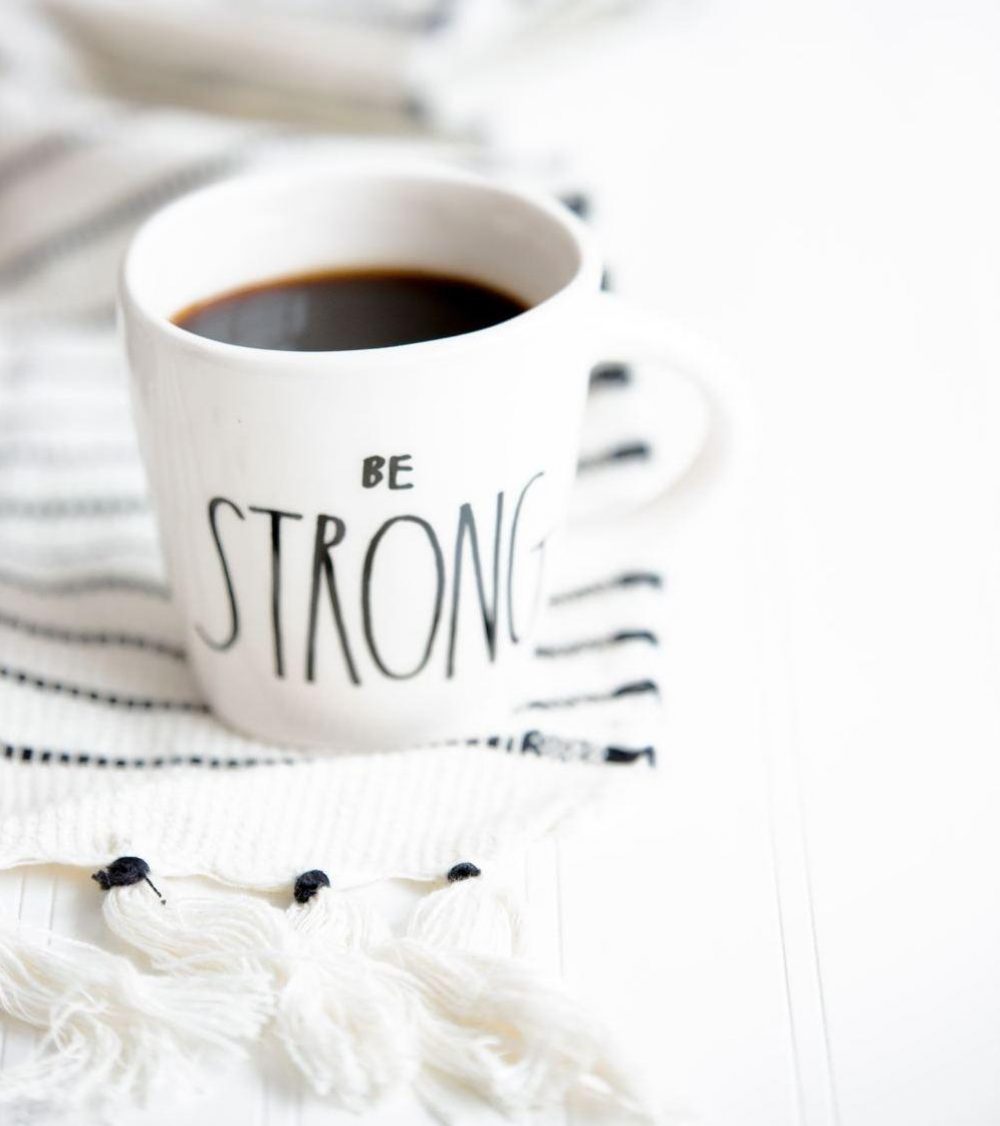
So, this isn’t Derren Brown stuff...
Honest!
Mind training is gently and kindly challenging your friend when they say negative things about themselves (that sounds way easier, eh!?).
Negative thoughts are part of our human mind set. Most of us have to fight the inner voice which tells us we are rubbish, ugly, fat, stupid or unkind at some points in our lives… The key to managing this negative inner voice is to train your brain to tell it to ‘get stuffed’!
If your friend says negative things about themselves often, here are some tips to help them ‘train their brain’:
- Listen to them – don’t say ‘that’s rubbish’
- Don’t get angry when they say negative things about themselves
- Do – ask them to say what the opposite is of the negative thought
- Do – ask them write the positive side of each negative thought they have
- Do – ask them to put the negative thoughts they have written in the bin
- Do – ask them to put the positive thoughts up in their room, or list them on their phone so they can see them and read them when they are saying negative things
- Do – do things together than are achievable and fun. If they hate ice – skating and fall over all the time, don’t go ice skating!
- Do – be positive in the words you use with your friend, even with ‘banter’! It has a huge effect.
Now, try it on yourself too – positive people have a better outlook on life!

The blog post below was written by Deanne.
I’ve never been good at introductions so here we are. My name’s Deanne, Im 16 and like many other teenagers struggle with my mental health. I’ve chosen to write for Selfharm UK because I want to share my story, advice and for you to all know that you’re not alone.
Anxious, paranoid, scared, lonely and isolated. Those five words describe who I was for a long period of time. For someone at the age of 16 this can be an overwhelming experience.
On the day that I found myself in the A&E department with two police officers I couldn’t feel anything but pure fear. Afraid of the two ladies sat with me, afraid of the outcome of this assessment. I had no clue what my future would hold for me and I didn’t care. This lead to the destruction of my life, not being able to remain in school, and ruining relationships with those who cared for me the most. As I sat in that chair, I was in denial. I was blaming everyone else for what had happened rather than accepting that I had responsibility.
It wasn't until they reached out to me (I had spent hours crying, unable to move, paralysed and stuck to that spot) that I was able to receive help. I was diagnosed with anxiety and depression, and I went on to receive CBT under the NHS. This helped me to take my first step on the journey of recovery which I am still invested in and still on now.
1 in 5 children suffer from a mental health illness. Knowing this, I urge anyone suffering to speak out. Whether it’s to a trusted adult, your GP or a family member - please speak out. Struggling with your mental health isn’t a sign of weakness and is much more complex than fixing a broken arm or a broken leg. Offering support, a shoulder to cry on or just being there could mean the world to someone who is struggling.
After years of self-hate I now realised the mistakes I made. I needed help, and thanks to the fantastic support from the NHS, I am back on track. Next year I will be 17 and I plan to start working towards having a career. All it took was for me to be gentler, kinder and fairer to myself. In the hardest of times, please remember to stay true to yourself and not lose sight of who you really are.
Please don't be too hard on yourself, lose sight of yourself, or feel ashamed if you have or haven’t asked for help. Together we will grow, together we will rise and we will thank our lucky stars that we are all alive.

The blog post below was written by Ellen.
The arrival of the New Year can make us feel like we should be transforming into brand new people, and while having New Years Resolutions is a great idea, sometimes the pressure can feel overwhelming.
If you’re reading this then you probably know that self-harm isn’t an easy thing to quit. Like with any addiction, it takes time to get to a place where you’re ready to stop. It’s important to remember that it’s okay to slip up; just because you take a few steps backwards doesn’t mean you can’t then take some strides forward.Megan McArdle, author of ‘The Up Side of Down’ writes that, “failure is a roadmap for what not to do next time.”
Sometimes setting ourselves concrete New Years Resolutions can be incredibly daunting; in fact, it seems more of us give up on them when we’re overly strict with ourselves. It might be an idea to think of more flexible goals: e.g. you could aim to ‘self harm less’ rather than saying you’re going to ‘stop self harming completely’. You could also approach it from a slightly different viewpoint: ‘This year I’m going to find another way to cope with my feelings.’ Maybe you could aim to understand what triggers your urge to self harm and develop ideas of how to beat the urge before it gets too much.
One good thing about New Years is it provides a neat opportunity to wipe the slate clean; stop holding onto all those times you felt bad, or felt like you’d let yourself down, and draw a line under the past year.
While there is an emphasis on parties and extravagance at this time of year, try to remember that what really matters is your own health and happiness. Take things at your own pace; set yourself goals that are realistic; be proud of yourself for all the good things you did in the year gone by. It’s easy to focus on what we’ve done wrong, or the disheartening stories we see in the news, but it’s important to remind yourself of what you’re grateful for and what you’ve achieved.
Jeremy Eden, author of ‘Low Hanging Fruit’, advises that we recognise the things in our lives that deserve “gold plating”, and realise that good is good enough for other things. And Bob Rosen, author of ‘Grounded’, reminds us that it’s perfectly okay to be selfish and take care of our own needs; “Our theory of human development is based on a model that you’re either selfish or you’re community orientated... The truth is that you need to be both. It’s not either-or.”
If you or someone you know self-harms it can be difficult to keep incidents in perspective. Yes, you should aim to (eventually) stop, but allow yourself enough time and expect a few bumps in the road. So maybe you have physical or metaphorical scars, but scars fade, and pain doesn’t last forever; start afresh and move on from what’s behind you.

A New Year reflection by Elizabeth.
First and foremost a shout out to SelfharmUK, they have been doing such a fantastic job of providing a platform for people to speak out.
When I started to open up about the challenges I was facing, (most of which only existed in my mind), things started to change for me. We all go through tough times, but know that without the valleys you can’t enjoy the hilltop experiences. So, here’s a little bit of my journey to where I am now.
Reflection for me is something I don’t do very often, I find it hard to do, particularly in the business of life. I find myself either constantly planning for the next thing and not enjoying each moment or being distracted by things around me (like pointless new feeds on my phone!). I noticed that I got to the point where I found it quite hard to remember what I was doing throughout each day. So, in January as we always do, I decided before I went to bed, I would reflect on the day and be thankful for conversations I had that day, people I’d met and moments I would learn from. Well like January resolutions happen, it started and stopped. One thought I do remember though, is how excited I was for the year ahead as I had several opportunities of leading at events and I had a few little breaks away with family. Little did I know that on one of my long weekends away, my boyfriend would propose to me! You never know what's around the corner.
In January I was starting a new job as a youth and children’s worker in my hometown, Leighton Buzzard. It has been my passion to be able to work with young people in my local area. Having struggled a lot, myself at school with friendships, self-confidence, and academia, I wanted to give back where my youth leaders had helped me. This new role couldn’t have come at a more poignant time. When I returned home, I found out that sadly there were three suicides in quick succession over the Christmas period. For me this just solidified the reasons why I wanted to go back. There desperately needed to be more support for every family, schools, and community.
Throughout this past year I’ve learned many lessons from this new role, some of which have been very painful, but all of which have helped build my character for the better. People pleasing, rest and time management are a few of those things I needed to change. I know that if I want to work with families, schools and communities I won’t please everyone. Not only that, I can’t take on other people’s problems, I can be there as someone to be listening and supporting, but I must learn to rest and take time out for me. Otherwise, I’ll burn out! This is something I find very difficult and I am constantly being reminded of that. For me, my relationship with Jesus is paramount to my everyday life, my identity is not in how much I do, or if something is successful or not, it is that I am loved by my father in Heaven.
One reflection this year I have enjoyed remembering is, the priceless moments of being able to tell those who needed to hear, listen to those who needed an ear and walk alongside those who needed a peer. Whether it be in our mums and tots’ groups, Sunday Celebrations, or our youth connect groups. I have been given the chance to have those one to one times and hear other stories. We have all taken some helpful insights from each other and been able to apply it to our life.
As each month has passed, I could easily have forgotten all the amazing opportunities I had. One, because I wanted to forget, and two, because of sheer busyness. I was being drawn out of my comfort zone so many times. On a few occasions, I was so anxious that I wanted to turn around and run away. I had to battle in my mind, constant negative thoughts, and the lies I kept hearing in my head like “I can’t do this”, “I’m not good enough”, “people are annoyed with you” etc. I can’t say I loved being in that place, but I can say we all go through hills and valleys. Without the bad experiences, you can’t appreciate the good ones. What good moments have you had this year that have helped shape you for the better?

The blog post below was written by Sophie, a previous Graduate Volunteer with SelfharmUK and Youthscape.
I’m not usually someone who gets really excited for Christmas Day. For as long as I can remember, I was always at my mum’s for half of the day and my dad’s for the other half. I never really had a problem with having two homes – it was quite nice sometimes! But Christmas is the time when having a broken family is highlighted. Seeing other people’s festive photos would get to me. Obviously I knew not everyone was having the perfect Christmas, but seeing friends having big, ‘perfect’ family do’s would just remind me that I didn’t have that. At one house, it was almost like people were trying to play happy families when it wasn’t the case at all. It just felt forced and awkward.
I don’t find it as much of an issue now, and I’m even prepared for the drama I know will take place this year! But around Christmastime, feelings are automatically triggered for me based on how I’ve experienced Christmas in the past. So over the years it’s become normal to not feel the best during this time, but it’s something that is changing!
A few years ago, I was out with some friends and the place where we were, happened to have a Christmas themed night (bearing in mind it was April, so I don’t know what was going on there!) They’d play a Christmas song every few songs and it got to the point where I had to take a step outside as it was just making me feel down. Of course, everyone LOVED it, and they were dancing around, singing at the top of their lungs. I thought everyone liked Christmas, until one of my friends joined me outside. I explained why I was out there, and she turned to me and shared how she didn’t really like Christmas that much either. She was just going along with it, having a sing and dance. It was SO refreshing to hear I wasn’t the only one in there pretending.
However you are feeling this Christmas, you are not alone.
Did you know that it’s okay to not be okay at Christmas?
It sometimes seems like we have to be so joyful at Christmas, so we put on fake smiles and go along with the festivities when really, for some, it’s a time of pain, anxiety, stress. Perhaps Christmas reminds you that a loved one is no longer with you, perhaps it reminds you of how broken your family is. There are many reasons why Christmas may not be the happiest time of the year for you, and that’s totally okay.
The thing is, it’s pretty hard to avoid Christmas altogether, but there are always ways you can try and make it easier for yourself.
Knowing that the urge to self harm is usually heightened at Christmas can give you the upper hand as it won’t catch you off guard. It means you can come up with a number of distractions and other ways to cope in those moments. You can find some suggestions here. Take time for yourself this Christmas – you don’t have to fake how you’re feeling.
This year I’m choosing to shift my focus from the things I don’t like about Christmas, to the things I’m thankful for, appreciating what I do have rather than what I don’t. I want to be thinking more about the real meaning of Christmas rather than being so caught up in my own circumstances. I’m going to make more time for self-care; doing things that help energise and fill me rather than drain me.
A YouTuber I’ve found to be really helpful is Kati Morton. She is a licenced therapist and creates videos on a broad range of topics surrounding mental health and answers questions from her viewers. My particular favourite this year is a video where she gives some handy tips on how you can stay mindful at Christmas...
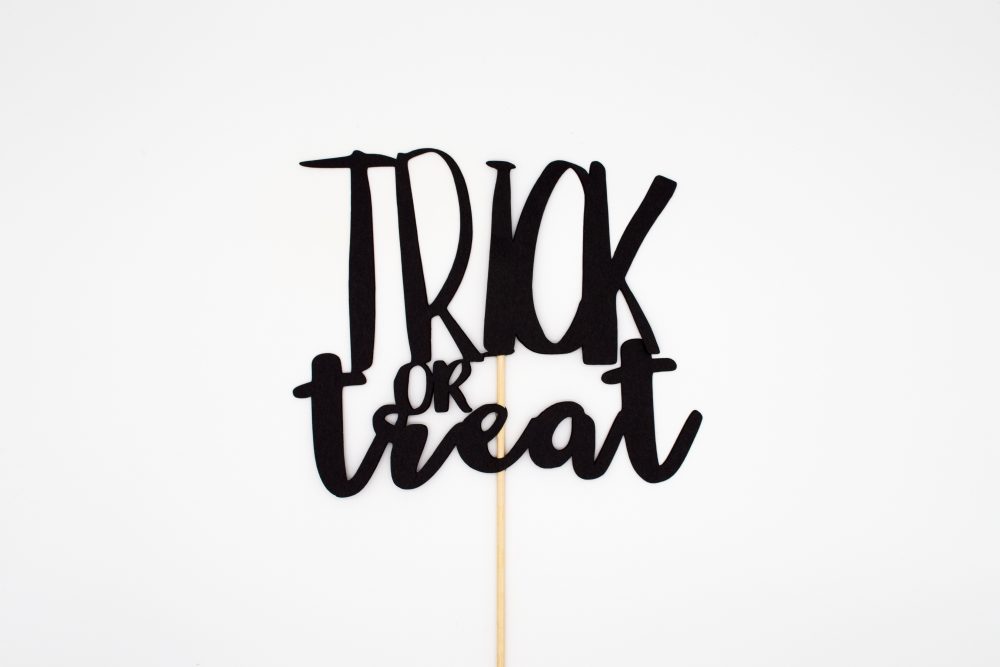
What are the things that weigh you down, hold you back and drain you?
We were thinking about this during the Hope Group earlier this week. If you don't know what the Hope Group is, you can read more about it here. What we found was - often the things that weigh us down, hold us back and drain us, are the things that bring us the most joy too.
For example, I really love my family, but sometimes it feels like they make my life a living hell at times! My mum in particular often weighs me down with lots of nagging and asking questions about what I'm doing at the weekend, and why I can't tidy up after myself. This type of criticism can make me feel increasingly drained, knocking my confidence and holding me back from doing things incase I'm no good at them.
Sometimes, writing down all the things in our head that we know are weighing us down, holding us back and draining us is a good exercise to do. This is because taking thoughts out of our head and onto paper can make them appear a lot less powerful and give us more control over them.
Here's the activity we did during the group...
Bandaged Mummies activity
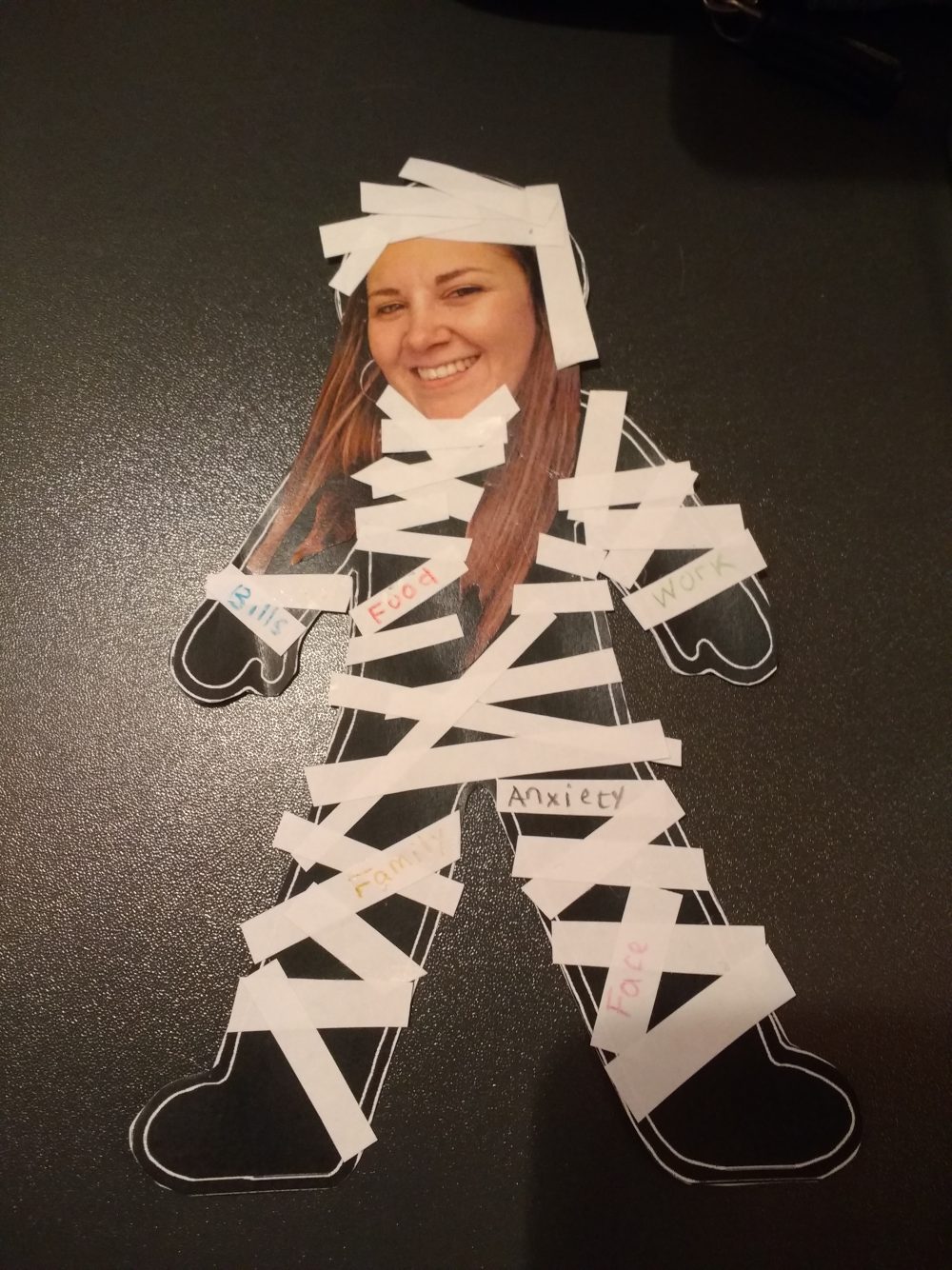
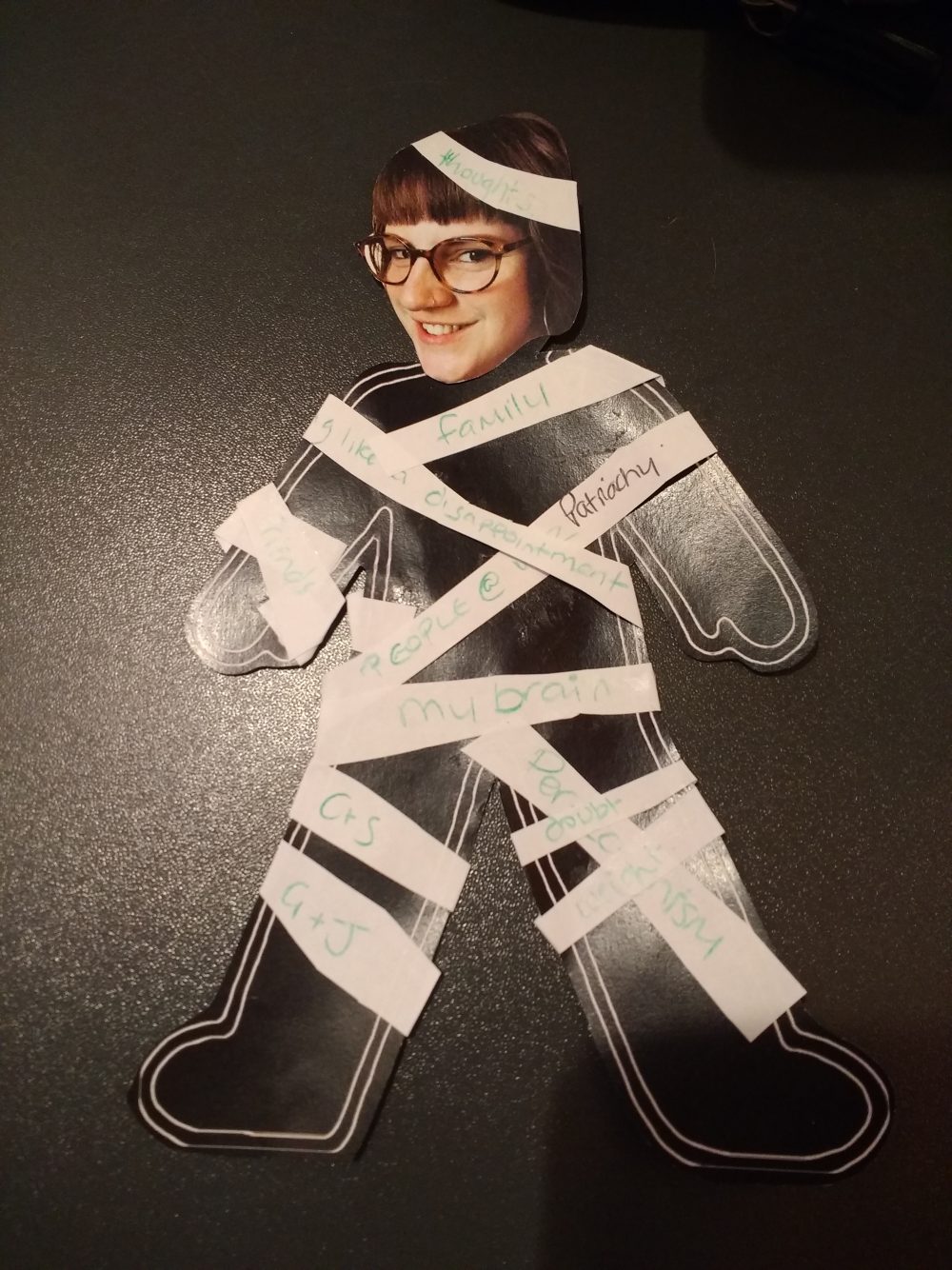
To make your own Bandaged Mummy, you will need:
- Scissors
- Glue
- Plain A4 white paper
- A photo of your head
- A piece of A4 black card
1) Use the black card to cut out a body shape
2) Cut out the photo of your head and stick it onto the body shape
3) Cut up strips of white paper and stick them like bandages on your mummy
4) Think about all the things that weigh you down, hold you back and drain you, and write them on the bandages
5) Keep your mummy as a reminder of all the things that can weigh you down, hold you back and drain you - BUT REMEMBER - you have control over how they make you feel!
Happy Halloween 🎃
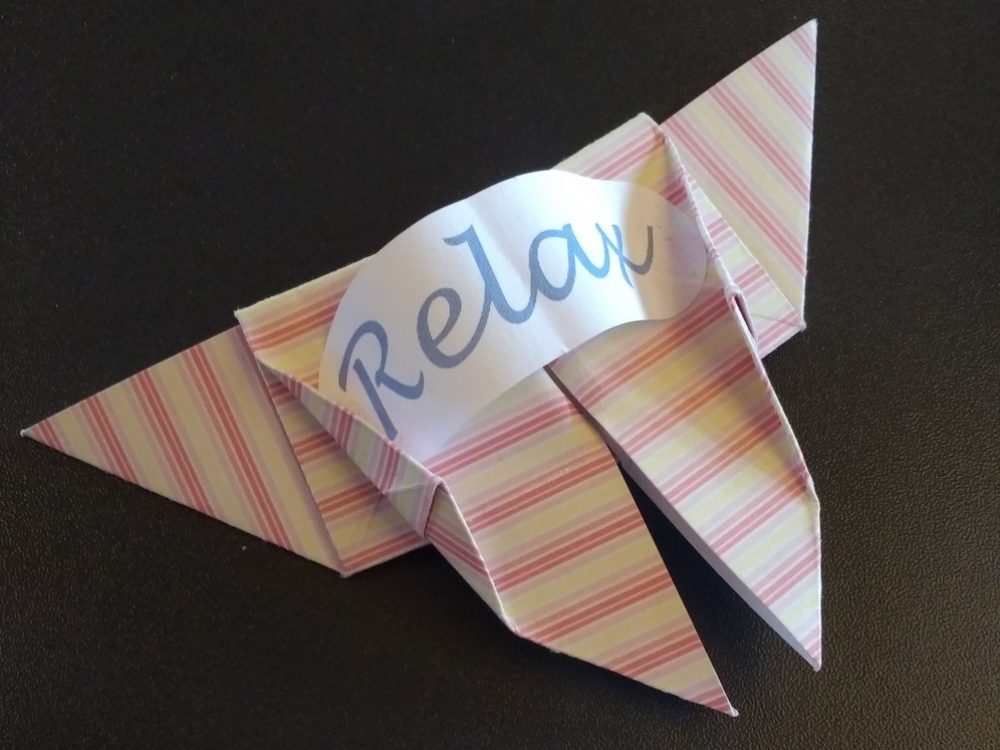
Last week at drop in was ‘relaxation week’. What’s drop in and why was it relaxation week we hear you ask? Well, drop in is basically what we call our after school club for young people. Every week night from 3.30pm until 6pm, young people from Schools all across Luton come and hangout here at the Youthscape building as soon as the bell rings for their final class. When they arrive, they usually head straight for the PlayStations, the pool table or to buy themselves a milkshake or a toastie! But that’s not all there is to do.
Every week, we have a different theme a drop in. The idea of each theme is to offer advice and to encourage young people to reflect on what that theme means to them and their life. To do this, we often set up activities and games based around that theme. For relaxation week, we were specifically looking at:
- Why rest and relaxation are important
- Different ways to relax and look after ourselves
- Relaxing physically, mentally, and spiritually
One of the activities we invited our young people to take part in order to explore what the word ‘relaxation’ actually meant, was collaging. If you search in a thesaurus, you’ll find that there are lots of words and phrases that mean ‘to relax’. ‘Unwind’, ‘loosen up’, ‘calm’, ‘sit back’ and ‘feel at home’ are just some examples. Can you think of anymore?
Using these words and phrases, we asked young people to pick the one that resonated with them the most, and to create an image or collage that visually represented how they interpreted it. Here’s how they got on…
👆 Some chose to create images that related to their lives specifically, by drawing their house or showing how they relax by sleeping.
👆Others made images that were very literal of the phrase they were trying to represent.
👆And some were a lot more abstract and emotive.
Whatever 'relaxation' means to you, make sure your taking time to look after yourself. This week, it's half term here across the Schools in Luton. We really hope our young people found this relaxation activity helpful as they prepared to take a break from their studies. If you wanted to try this activity at home, all you need is some bits of coloured and patterned card, some glue and some scissors. What does relaxation mean to you? 😊

In this article, SelfharmUK Web Manager Jess chats to colleagues Jo and Helen about mental health and being a teenager for #WMHD
SHUK: Who are you and what do you do at SelfharmUK?
J: I am Jo, I run the Alumina programmes most nights of the week. And this is a photo of me when I was a teenager...
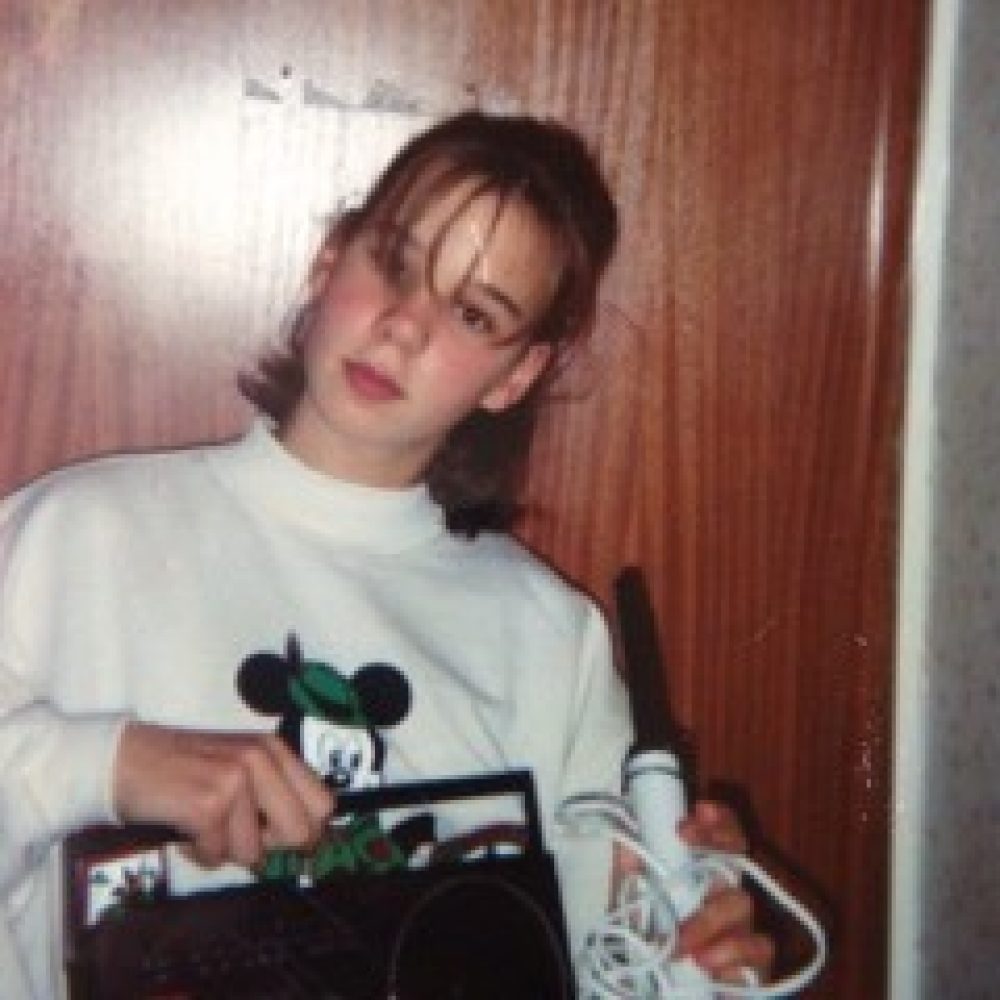
H: My name is Helen and I head up the emotional and mental wellbeing work that we do in Luton, this work feeds into what we do with the website and gives the young people of Luton a voice in what we do. I also deliver training and give lots of talks on mental health. This is a photo of me when I was a teenager...

SHUK: How has your understanding of the importance of looking after your mental wellbeing changed from when you were a young person?
J: I didn’t have a clue about it as a teenager; I was told it was attention seeking behaviour if you were down, sad or angry. Now, because i have struggled with anxiety and depression at times, I understand that that is so far from the truth.
H: When I was a teenager and you were struggling with your mental health it was put down as "hormones" or "attention seeking" because of this I didn’t understand that your mental health was something you had to look after and just thought it was something you had to be ashamed of. Now I know it is just as important as looking after my physical health, I go to the doctor for my asthma, which means that I also go to the doctor when I’m struggling with stress or anxiety.
SHUK: What do you think was your hardest life change as a teenager to adapt to?
H: Being noticed maybe? Every few years my mum would have another baby and so I just spent a lot of time feeling lost and unimportant. Especially as three of my siblings were in school with me and they all had better grades and didn’t get into trouble like me. I felt like an outcast at home and in school and with my friends.
J: For me it was bereavement. My best friend was killed in a car crash and I lost my much loved grandma all within a month. Loss effects our mental health greatly, I just didn’t realise how much when I was 12.
SHUK: What do you think is the hardest change for young people to adapt to now a days?
J: I think social media plays a huge part in how we feel about ourselves; how we want to look perfect and look like we are having fun because we believe everyone else is. I know it’s not true as everyone is struggling with their own stuff, also trying to make it look like they are having an awesome time. It is hard to turn away from social media.
H: I think the change from being a child to an adult, it’s hard to adapt to when you are expected to be an adult and make adult decisions (such as choices about your future) but at the same time being treated like a child and still dealing with the physical changes of becoming and adult.
SHUK: When you were having a bad mental wellbeing day at School, what did you do? Was there someone you could tell? What did they say? Did you tell your friends? Did they understand?
J: I struggled to talk about my feelings when i was a teenager as my family didn’t encourage us too so , I didn’t tell anyone until I was in my late teens about how hard i had found certain things. I regret that now, which is why I do my job: I know the value of someone listening to you.
H: I didn’t really have anyone to talk to. I would yell at people or walk out of lessons or get in fights. When I expressed how much I was struggling to a few of my friends they would call me a "psycho" and would walk away from me until I was “normal” again. I just felt ashamed.
SHUK: What advice would you give to young people struggling with any aspect of their mental wellbeing?
J: Find help - whether that’s through a friend, parent, counsellor, online safe place (Childline, The Mix or Young Minds) - and begin to explore why you feel like you do. Don’t stay silent, there’s people who want to help.
H: Ask for help, people are much more understanding now, it’s not something to be ashamed of and there are loads of different places you can get help from, online, in person, over the phone and more (as Jo has mentioned above). Also find healthy ways of expressing how you feel, art, music, baking, writing, working with animals. Mostly be kind to yourself.

